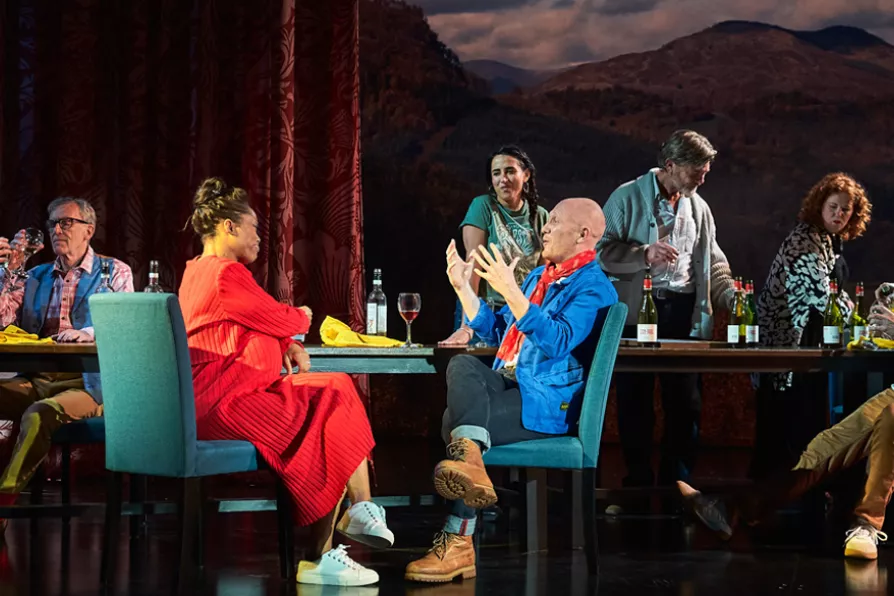TONY BURKE speaks to Gambian kora player SUNTOU SUSSO
The state of the nation
ANGUS REID welcomes a penetrating study of a dysfunctional Scottish family at the time of the independence referendum

 SCOTS CHEKHOV: Group Portrait in a Summer Landscape
[Fraser Brand]
SCOTS CHEKHOV: Group Portrait in a Summer Landscape
[Fraser Brand]
Group Portrait In A Summer Landscape
By Peter Arnott, Royal Lyceum Edinburgh
THIS is an extraordinary play. It equates the inability to grieve with the loss of faith in socialism, and demonstrates at a human level how this paralyses the ability to act or think politically.
A loose family group assemble at a house in rural Scotland in the summer before the independence referendum, and the dialogue captures the way that binary choice, yes or no, infiltrated conversations and lives.
Unlike the Brexit vote two years later, that channelled anti-establishment rage and was led by the right to a majority, playwright Peter Arnott’s characters are situated within the hesitant ambiguity of the Scottish left. They may have been Marxists once, but they express neither working-class resentment nor a confident vision of the future.
Similar stories

While the group known as the Colourists certainly reinvigorated Scottish painting, a new show is a welcome chance to reassess them, writes ANGUS REID

ANGUS REID recommends an exquisite drama about the disturbing impact of the one child policy in contemporary China

STEF LYONS is swept along by the infectious energy of an ex-con single mother’s dreams of Nashville

ANGUS REID deconstructs a popular contemporary novel aimed at a ‘queer’ young adult readership










